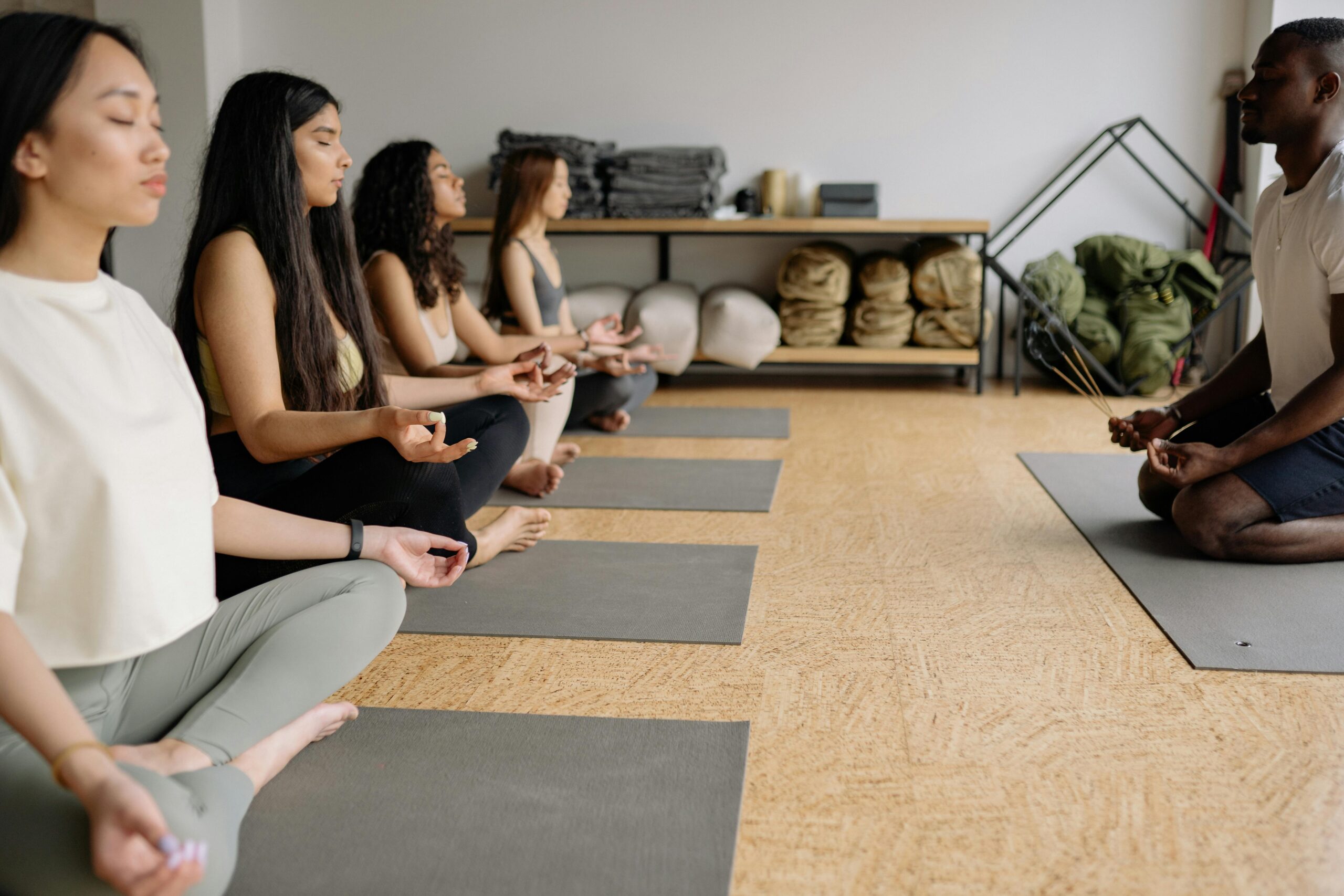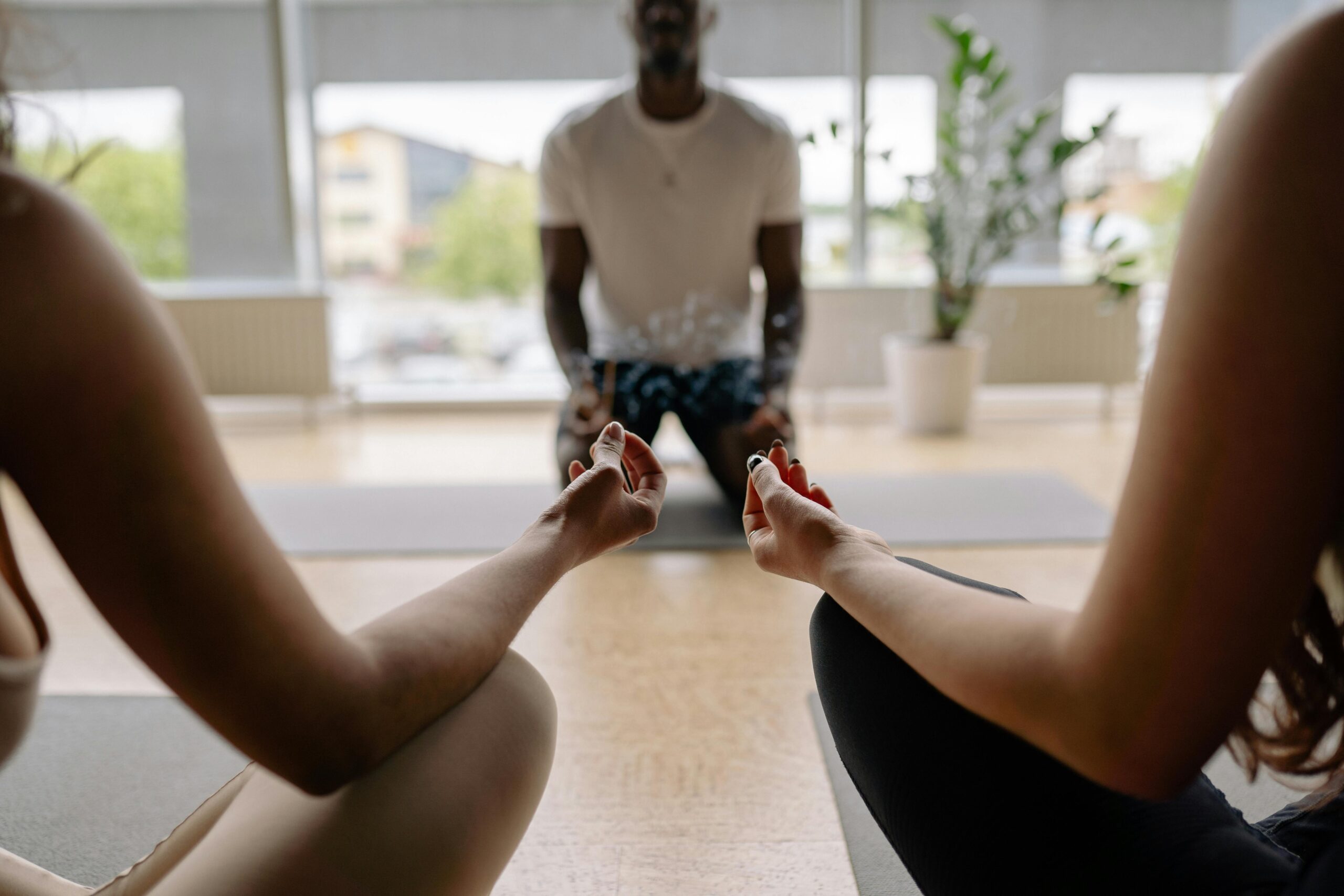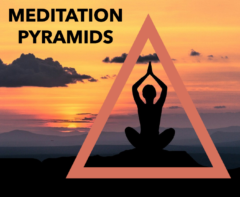Meditation, an age-old practice rooted in ancient traditions, finds its way into modern life, helping folks tackle the hustle and bustle. But what exactly is meditation? Simply put, it’s a technique of focusing the mind, immersing oneself in the present moment, and cultivating a sense of calm and clarity.

In a world buzzing with rapid changes and towering expectations, meditation steps up as a trusty companion for mental health. With chaos often taking the front seat, it’s meditation that offers a moment to pause, breathe, and reconnect with what’s important. The practice provides solace, a space to decompress, and a way to cope with stress.
So, how does meditation work its magic on mental well-being? It’s all about transforming how the brain reacts to stress and fostering a positive mindset. Mindfulness and meditation help by promoting emotional resilience. They teach valuable skills like patience and empathy that enrich daily interactions and improve overall mood.
Meditation isn’t a one-size-fits-all affair. It’s deeply personal and can be tweaked to fit different lifestyles and preferences. Whether through guided sessions, breathing exercises, or momentary reflections, everyone can find their groove. This versatility is what makes meditation accessible and appealing to a wide range of people.
How to Meditate: A Beginner’s Guide
Meditation isn’t as daunting as it may seem. Starting is all about finding the right fit for you and understanding what it involves. Different methods cater to different needs, so explore a bit and see what resonates. Whether you prefer focused breathing, guided imagery, or even walking meditation, there’s something out there for everyone.
Begin by picking a comfy spot and time where interruptions are minimal. Sit or lie down, close your eyes if it feels right, and bring your attention to your breath. Notice the air as it moves in and out. Let thoughts come and go without judgment. It’s natural for the mind to wander, so gently bring your focus back to the breath when it does. Start with just five minutes a day.
Common pitfalls include expecting instant calm or trying too hard to silence thoughts. It’s all about patience and practice. Meditation isn’t about perfection; it’s about being present in the moment. The more regularly you practice, the easier and more rewarding it becomes. Don’t get discouraged if it feels awkward or challenging at first.

Create a routine that aligns with your lifestyle. Some folks find it helpful to meditate first thing in the morning to set a positive tone for the day. Others use it to wind down before bed. Feel free to experiment with different times and lengths, gradually extending sessions as you get more comfortable. Consistency helps in reaping the lasting benefits.
Unleashing Potential: The Benefits of Meditation for Students
Meditation offers a treasure trove of benefits, especially for students navigating the demands of academic life. It enhances focus and concentration, turning study sessions into productive experiences. By quieting the mind, meditation allows students to fully engage with their material, leading to better understanding and retention.
Stress and anxiety are familiar foes in a student’s world. Regular meditation can significantly reduce these barriers, providing a mental reset button. It helps diffuse the tension before exams, making way for calmer nerves and clearer thoughts, crucial during tests.
The creative surge that comes with meditation isn’t just a myth. By encouraging open thinking and fostering new perspectives, meditation boosts creativity—a highly valuable skill for tackling challenging problems and projects. This fresh outlook can inspire unorthodox solutions and innovative ideas, a great asset in any academic setting.
Let’s not forget about emotional regulation. Meditation sharpens this skill, helping students deal with the ups and downs of college life. It encourages mindfulness, influencing how students react to stressful situations, thus improving interpersonal relationships and enhancing self-awareness. This emotional stability can greatly impact student life, making day-to-day interactions smoother and less fraught.
The Science Behind Meditation: Physical and Cognitive Benefits
Meditation’s impacts go far beyond just calming the mind. It has tangible effects on the body, contributing to overall physical well-being. Regular practice can lower blood pressure, reduce inflammation, and improve cardiovascular health. By engaging in meditation, the body’s stress response is regulated, creating a balance that supports a healthier lifestyle.
On the cognitive front, meditation shines brightly. It’s known to enhance brain function, sharpening focus and aiding in memory retention. This is where neuroplasticity comes into play. Meditation encourages the brain to develop new neural pathways, strengthening areas related to attention and emotional regulation. This growth helps improve learning and cognitive flexibility.

In terms of mental health, meditation serves as a powerful tool for boosting mood and reducing symptoms of anxiety and depression. It cultivates a sense of inner peace, offering a mental respite from daily challenges. By promoting a mindful approach to life’s hurdles, meditation nurtures resilience and enhances overall emotional health.
Physical benefits aren’t limited to internal systems. Meditation can also improve sleep quality and reduce chronic pain by altering the perception of discomfort and encouraging relaxation. It’s a holistic practice that supports both mind and body, proving invaluable for anyone looking to improve their quality of life. The beauty of meditation is in its accessibility and adaptability, making it a convenient and effective practice for diverse lifestyles.

What a great read! I love how this article breaks down the ways meditation can impact mental well-being in such practical terms. It’s fascinating to see the connection between meditation and improved focus, emotional resilience, and stress reduction. I’ve been interested in trying meditation, and this gave me a clear sense of how even a few minutes a day could make a difference. Looking forward to exploring more of these benefits firsthand!
Hi Randi
Thank you so much for your encouraging words! It’s wonderful to hear that the article resonated with you and highlighted how accessible and impactful meditation can be. Just a few minutes a day truly can make a difference, especially for focus, resilience, and stress relief. Starting small is a fantastic approach—you might find that even short sessions quickly bring a sense of calm and clarity to your day.
Wishing you a fulfilling journey as you explore these benefits firsthand! If you have any questions or would like tips on different meditation styles, don’t hesitate to reach out. Happy meditating! 🧘♀️
Kindest regards
Alan
This blog offers insightful perspectives on the profound impact meditation can have on mental health. It highlights various techniques and the science behind meditation, effectively illustrating how regular practice can lead to reduced stress, improved focus, and heightened emotional resilience. The personal anecdotes make this relatable and credible for readers seeking mental wellness strategies.
What specific meditation techniques do you recommend for beginners looking to incorporate mindfulness into their daily routine?
Hi Nikki
Thank you for your thoughtful comment! I’m thrilled to hear that the blog resonated with you and highlighted the transformative potential of meditation for mental health. Your appreciation for the balance of science, personal anecdotes, and practical insights is truly encouraging.
For beginners looking to incorporate mindfulness into their daily routine, I often recommend starting with breath-focused meditation. It’s simple yet effective—just focus on the natural rhythm of your breath. Another excellent technique is the body scan meditation, where you gradually bring awareness to each part of your body, releasing tension as you go.
For those who prefer guided support, apps like Calm or Headspace can provide structure and guidance. Mindful walking, where you pay attention to the sensation of each step and the surrounding environment, is also a great option for those who find it difficult to sit still.
What kind of meditation techniques have you tried before, or are there specific challenges you’re aiming to address through mindfulness? I’d love to tailor my suggestions to your needs!
Looking forward to hearing your thoughts.
Best regards,
Alan